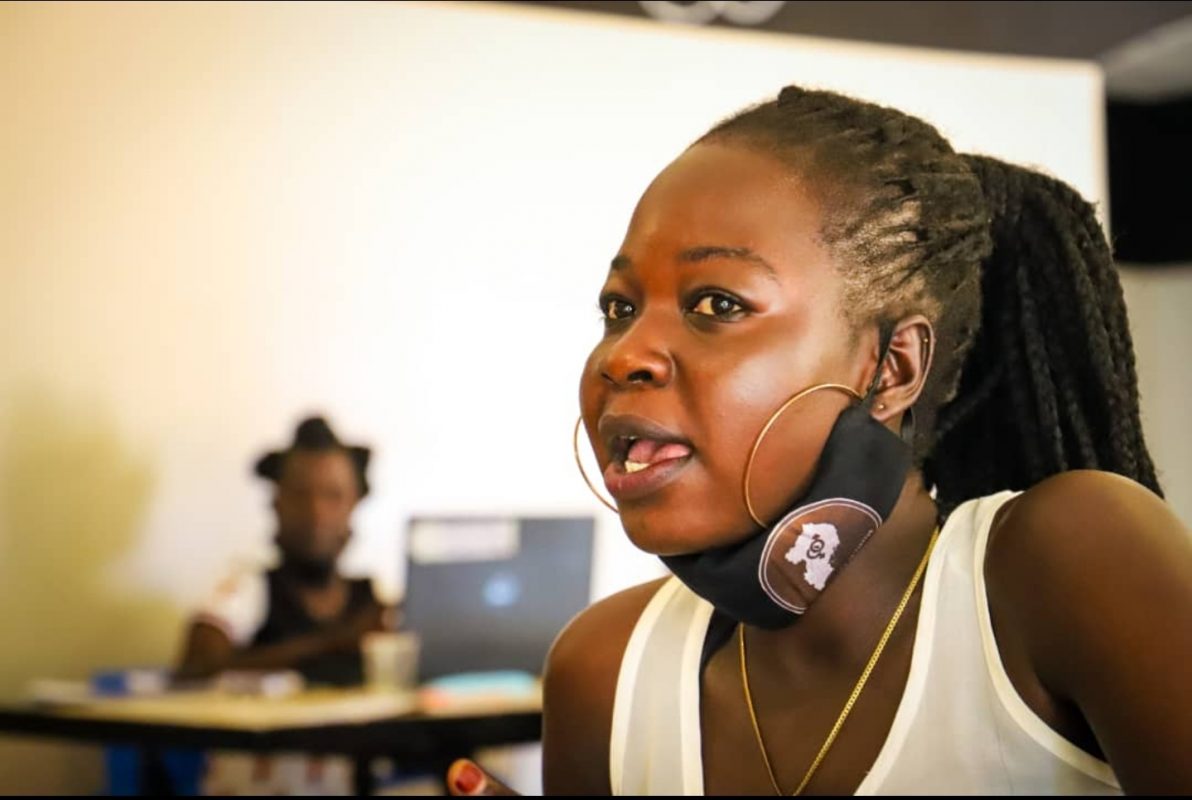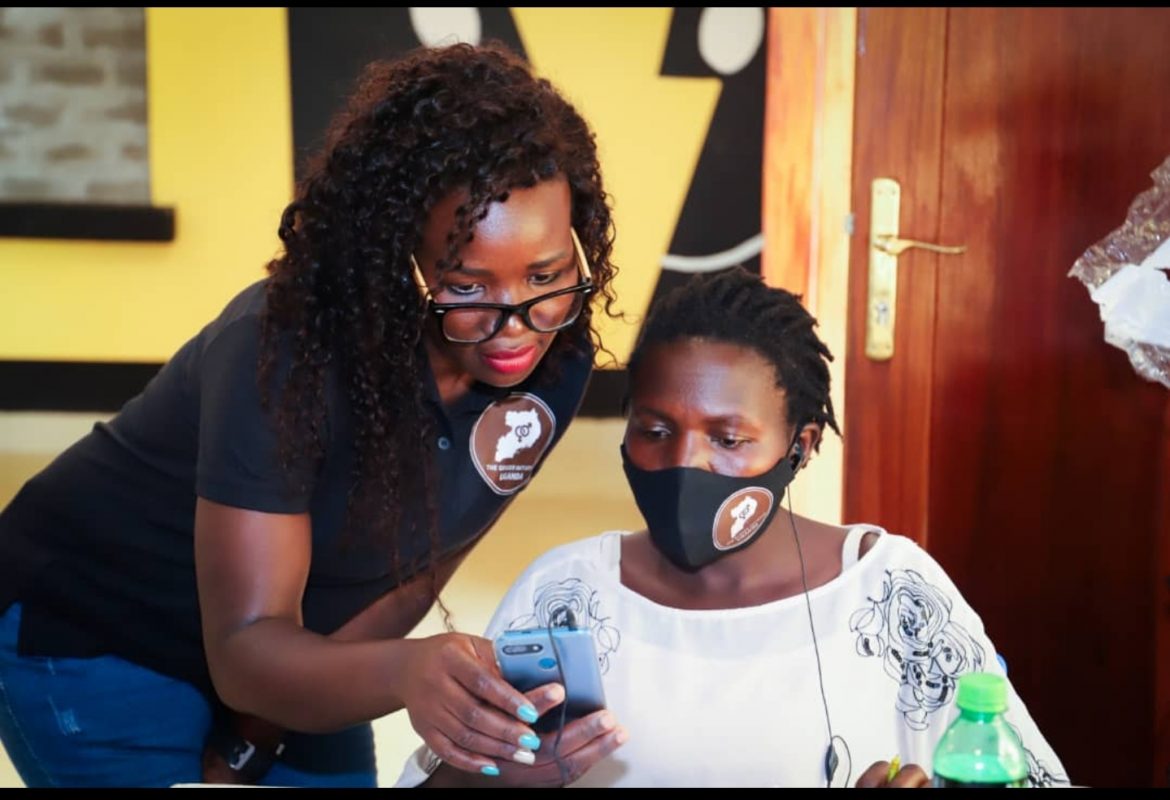Journalists should protect themselves and their sources by keeping up-to-date on the latest digital security news and threats such as hacking, phishing, and surveillance. Journalists should think about the information they are responsible for and what could happen if it falls into the wrong hands, and take measures to defend their accounts, devices, communications, and online activity.
To fulfill this Mandate, the Gender Tech Initiative-Uganda conducted digital safety trainings for female journalists during the 16 days of activism against Gender Based Violence.

A participant sharing her experience with Cyber Bulling that made her to almost quit the journalism profession. 
Ruth helping out a participant with how to change a password as many have had the same password for more than 4 years.
Journalists do use a variety of online accounts and these holds both personal and work-related information on themselves, their colleagues, families and sources. During the training, the journalists were reminded to secure their accounts and regularly backing up and removing information will help protect against hackers.
Our Lead trainer Ms. Ruth Atim took participants through basic digital safety measure which included the following among others;
- Reviewing the privacy settings on their accounts and understanding what information is public, especially on social media.
- Create backup copies of any information that is sensitive or that they would not want made public, including private messages, then storing the copies securely on an external drive or in the cloud.
- Delete any accounts that they no longer use and creating copies of any information they want to save.
- Create long, unique passwords for every account and not to reuse passwords. They were asked to use a password manager to help manage their passwords.
- Turn on two-factor authentication (2FA), and use of a security key like a Yubikey if possible.
- Regularly reviewing the ‘account activity’ section of each of their accounts. This will reveal if devices they don’t recognize are logged in.
